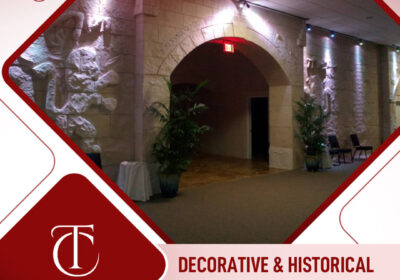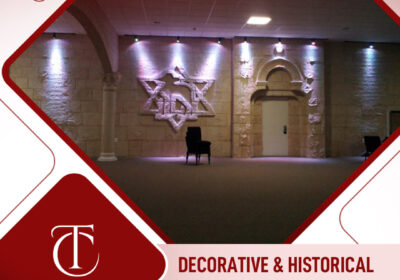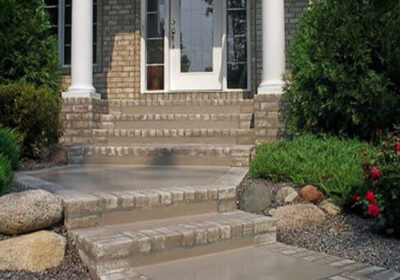Luxury Vinyl Plank vs. Engineered Hardwood Flooring Company NJ

Luxury Vinyl Plank vs. Engineered Hardwood Flooring Company NJ
Choosing the right flooring for your home can be a challenging decision, especially when there are numerous options available, each with its unique set of advantages and disadvantages. Among the most popular choices are Luxury Vinyl Plank (LVP) and Engineered Hardwood. Both options offer a blend of aesthetic appeal and functionality, but they cater to different needs and preferences. In this comprehensive guide, we’ll delve into the key differences, benefits, and drawbacks of LVP and Engineered Hardwood to help you make an informed decision for your home.
What is Luxury Vinyl Plank (LVP)?
Luxury Vinyl Plank is a type of vinyl flooring that mimics the appearance of natural wood. It’s composed of multiple layers, including a top wear layer, a photographic layer that replicates the look of wood, a core layer for stability, and a backing layer for additional support. LVP is known for its durability, water resistance, and ease of maintenance.
Advantages of LVP
- Durability: LVP is highly resistant to scratches, dents, and stains. It’s an excellent choice for high-traffic areas and homes with pets and children.
- Water Resistance: Unlike traditional wood flooring, LVP is water-resistant, making it suitable for kitchens, bathrooms, and basements.
- Aesthetic Versatility: LVP offers a wide range of designs, colors, and textures, allowing homeowners to achieve the look of natural wood, stone, or tile without the high cost.
- Affordability: LVP is generally more affordable than hardwood, providing a budget-friendly flooring option with high-end appeal.
- Easy Installation: LVP can be installed as a floating floor, glued down, or clicked together, making the installation process straightforward and flexible.
Disadvantages of LVP
- Authenticity: While LVP can mimic the look of wood, it may not offer the same warmth and authenticity as real hardwood.
- Quality Variance: Lower-quality LVP products can show signs of wear over time, so it’s essential to select a high-quality option for long-lasting satisfaction.
- Environmental Impact: Vinyl is a synthetic material, and its production can have environmental consequences. Additionally, some LVP products may emit volatile organic compounds (VOCs).
What is Engineered Hardwood?
Engineered Hardwood consists of a top layer of real wood bonded to several layers of plywood or high-density fiberboard (HDF). This construction provides the natural beauty of hardwood while offering enhanced stability and resistance to moisture compared to solid wood.
Advantages of Engineered Hardwood
- Authentic Appearance: Engineered Hardwood offers the genuine look and feel of real wood, providing a high-end aesthetic that adds value to your home.
- Stability: The multi-layer construction of engineered hardwood makes it more stable and less prone to warping and cupping than solid wood.
- Versatility: Engineered Hardwood can be installed in various environments, including basements and areas with higher humidity.
- Refinishing Capability: High-quality engineered hardwood can be refinished several times, extending the life of the flooring.
- Eco-Friendly Options: Engineered hardwood uses less hardwood per plank, making it a more sustainable option compared to solid wood flooring.
Disadvantages of Engineered Hardwood
- Cost: Engineered hardwood is generally more expensive than LVP, though it can be more affordable than solid hardwood.
- Quality Variance: The quality of engineered hardwood can vary significantly, with some lower-end products having a thin top veneer that limits refinishing possibilities.
- Maintenance: Engineered hardwood requires specific care, and improper maintenance can lead to damage and reduced lifespan.
- Acclimation: Engineered wood must acclimate to the environment before installation, which can extend the installation timeline.
- Susceptibility to Scratches and Dents: While engineered hardwood is more durable than solid wood, it can still be susceptible to scratches and dents, especially in high-traffic areas.
Comparing LVP and Engineered Hardwood
Durability
Both LVP and engineered hardwood are durable flooring options, but LVP has the edge in water resistance and resistance to scratches and dents. Engineered hardwood is more resistant to warping and cupping due to its multi-layer construction.
Installation
LVP is generally easier to install, with options for floating, glue-down, or click-lock installations. Engineered hardwood requires more preparation and acclimation but can be installed over a variety of subfloors.
Maintenance
LVP is low-maintenance and easy to clean, making it ideal for busy households. Engineered hardwood requires more care to maintain its appearance and prevent damage.
Aesthetic Appeal
Engineered hardwood provides the authentic look and feel of real wood, which can add significant value to your home. LVP offers a wide range of designs that can mimic natural materials, but it may not match the warmth and authenticity of real wood.
Cost
LVP is generally more affordable than engineered hardwood, making it a budget-friendly option for homeowners. However, high-quality LVP products can still be pricey, so it’s essential to consider your budget and preferences.
Environmental Impact
Engineered hardwood is often considered more eco-friendly than LVP because it uses less hardwood per plank and can be sourced from sustainable forests. However, the production of both materials can have environmental impacts, so it’s essential to choose products with eco-friendly certifications.
Making the Right Choice for Your Home
When deciding between LVP and engineered hardwood, consider the following factors:
- Location: For areas prone to moisture, such as kitchens and bathrooms, LVP is the better choice due to its water resistance. Engineered hardwood is suitable for living rooms, bedrooms, and other dry areas.
- Budget: If affordability is a priority, LVP offers a budget-friendly option with various designs. For a higher-end look and feel, engineered hardwood is a worthwhile investment.
- Lifestyle: Consider your household’s lifestyle and foot traffic. Homes with pets and children may benefit from the durability and low maintenance of LVP, while engineered hardwood can add value and elegance to more formal spaces.
- Aesthetic Preferences: If you desire the authentic look and feel of real wood, engineered hardwood is the superior choice. However, if you’re open to various designs and want a practical solution, LVP offers excellent versatility.
Conclusion
Choosing between Luxury Vinyl Plank and Engineered Hardwood depends on your specific needs, preferences, and budget. Both options offer unique advantages and can enhance the beauty and functionality of your home. By carefully considering the factors outlined in this guide, you can make an informed decision that suits your lifestyle and adds value to your property.
Contact Information
📍 Location: 312 Fair Lawn Ave, Fair Lawn, NJ 07410, United States 📞 Call Now: +1 201 315 2633 📧 Email: sales@topcoat-llc.net
Keywords
Luxury Vinyl Plank, Engineered Hardwood, LVP vs. Engineered Hardwood, durable flooring options, water-resistant flooring, authentic wood appearance, flooring installation, flooring maintenance, eco-friendly flooring, high-traffic flooring, budget-friendly flooring, aesthetic flooring options, flooring for homes, flooring for kitchens, flooring for bathrooms, scratch-resistant flooring, real wood look, multi-layer flooring, top flooring choices, NJ flooring solutions, flooring durability, residential flooring, commercial flooring, sustainable flooring, low-maintenance flooring, refinishing hardwood floors, flooring for pets, flooring for families, easy-to-install flooring, floating floor installation, glue-down flooring, click-lock flooring, quality vinyl flooring, cost of flooring, environmental impact of flooring, flooring for basements, engineered wood stability, flooring aesthetics, flooring for living rooms, flooring for bedrooms, flooring for dining rooms, high-end flooring, practical flooring solutions, flooring value, flooring preferences, flooring budget, versatile flooring options.



